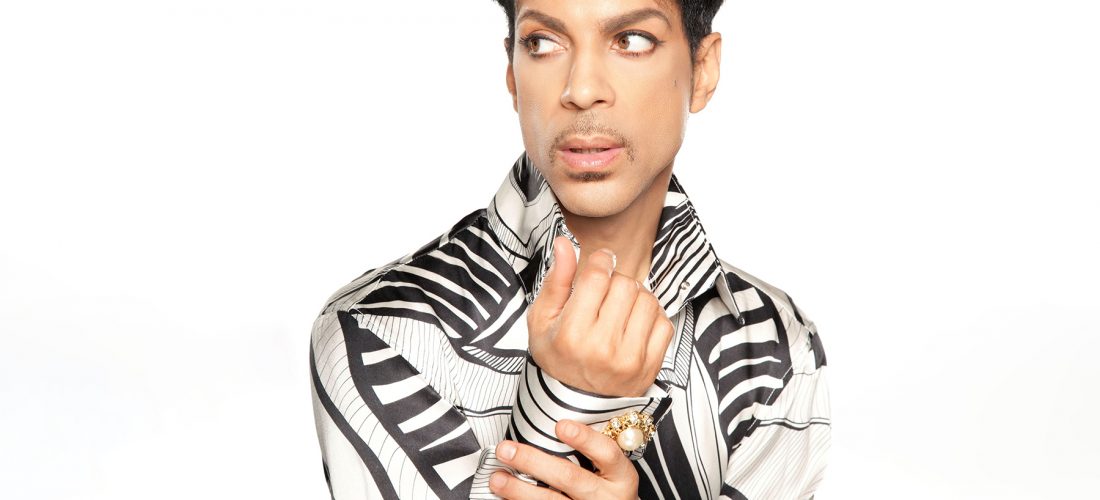Prince’s ‘Welcome 2 America’: Funkier, Sexier, Superflyier Than Most of His Latter-Day Music
Towards the end of his life, Prince was creating so much music that he appeared to lose sight of his vision. Although his records contained glimmers of brilliance, he had started entombing potentially glorious sing-along choruses, jaw-dropping guitar solos, and clever lyrics in overwrought R&B and heavy-handed garage rock. (Check the sparkly impotence of 1999’s Rave Un2 the Joy Fantastic.) And unlike the stunning concerts he performed until his death, his albums felt sinful (and not in a Dirty Mind kind of way) since the music was often so generic that it barely echoed the raw talent that originally consecrated the title of His Royal Badness. But as the posthumous releases culled from his fabled vault have recently proven, what the Artist deemed worthy of release rarely represented his capabilities.
The latest discovery, Welcome 2 America — a full album of fun, funky pop and R&B from 2010 — proves just how unreliable his instincts were since he inexplicably shelved it. From track one, it’s instantly more likable than everything he released between 2009 and 2014. The grooves are funkier, the sex jams are sexier, and the Curtis Mayfield homages are superflyier. Reports from his collaborators are that he loved the album when he made it. In fact, he liked the title Welcome 2 America so much that he named a tour after the record. So what happened? Whatever crisis in faith led to him abandoning the record is now forever lost to the Great Purple Beyond, but at least its release now shows where his head was at when he made it.
Prince cut the record with a one-off lineup that included bass virtuoso Tal Wilkenfeld and drummer Chris Coleman, and the chemistry is undeniable from the first song, “Welcome 2 America,” which feels like a cousin, once or twice removed, of “Sign ‘o’ the Times” with its bass-heavy backdrop and Prince’s didactic takedown of American values. He performs scabrous screeds about the housing market crash of ’08 and his contempt for iPhones and reality TV with a sort of hepcat/beatnik swagger that’s equal parts Gil Scott-Heron and Maynard G. Krebs. Some of it’s corny (“Go 2 school 2 become a celebrity … but don’t B late because everybody and their mama got a sex tape”) but hey, so were some of the lines in “Sign.”
He continues his tableau of American dystopia on “Running Game (Son of a Slave Master),” a hip-hop–inflected indictment of the music industry for taking advantage of budding musicians. Although he and his backup singers trade upbeat melodies, and he throws in some “What’s Going On”–style background chatter, his lyrics about black-on-black crime are sobering. Along with the Mayfield paean “Born 2 Die” and the dreamy “1,000 Light Years From Here,” “Running Game” fits perfectly with “Controversy,” “Race,” “”Baltimore,” and all the other songs Prince has written about how the U.S. is particularly Orwellian for black people.
As always, his message is for people to persevere, echoed in “Stand Up and B Strong,” a cover of a Bon Jovi–like power ballad by Soul Asylum with a gospel-R&B makeover and one of the album’s best guitar solos. The album’s closing track promises, “One Day We Will All B Free” over disco-guitar scratching and jazzy chord changes. In some ways, the social justice aspect of the album (and its soulfulness) feels like a descendent of There’s a Riot Goin’ On by one of Prince’s favorite groups, Sly and the Family Stone.
But the album isn’t all as serious. Prince and his bandmates cut loose on “Hot Summer,” an Elvis Costello–style beach-rock banger (complete with Farfisa organ) that probably would have sounded better live, and the song “Yes” feels like something caught between a Broadway revue and a halftime cheerleader show (the female backup singers chant, “If U’re read 4 a brand-new nation … say yes!”) but it’s so posi, you can’t help but smile.
But the album’s best song is “When She Comes,” since Prince was always did his best work when he was horny. In full “Do Me Baby” mode (piano, light guitar strumming, falsetto vocals, uh, bedroom sound effects), Prince describes his lover’s orgasm in the way only Prince could (“Occasionally, she cries/Please don’t ask me Y” — don’t worry, Prince, we won’t) and it feels natural. It’s Prince’s dirty mind, then aged 52, in arrested development, and the song is the sort of glorious audio pornography that would have made Tipper Gore phone all her friends in 1984 but seems tame compared to the Ying Yang Twins’ “Wait (The Whisper Song),” recorded five years earlier. Prince completely rewrote “When She Comes” with horns and accordion for 2015’s HitnRun: Phase Two, and while it’s still potent, there’s an intimacy to the Welcome 2 America version that sounds freer. Unfortunately, he took the time to overthink the song (and the album as a whole), which might explain why so many of his records came out sounding stilted.
But even if Prince had released Welcome 2 America in 2010, it’s hard to imagine how it would have been received. He had scored an unlikely hit in 2006 with 3121’s “Black Sweat,” which musically sounded like his own “Kiss” reimagined as a G-funk song, but that was his only Billboard hit since 1999. Pop music in 2010 was all about Katy Perry’s “Teenage Dream” and the Black Eyed Peas’ “Dirty Bit,” neither of which sound very much like anything on Welcome 2 America. Then again, judging from the lyrics to “Welcome 2 America,” Prince wasn’t interested in the pop life anymore anyway. What he did care about will remain a mystery, but puzzle pieces like Welcome 2 America will always be welcome.
